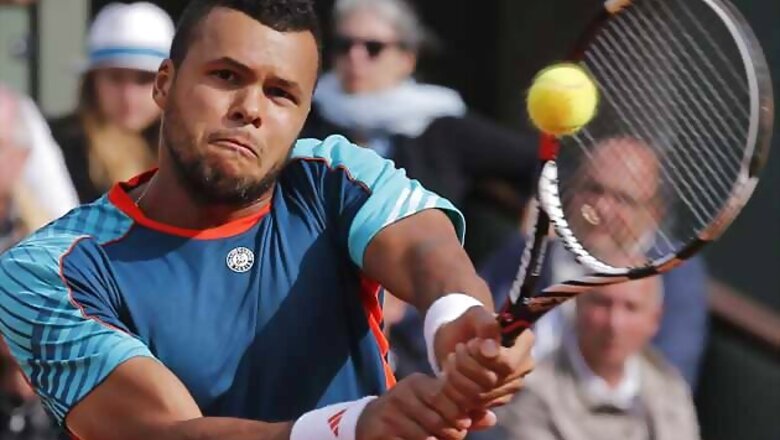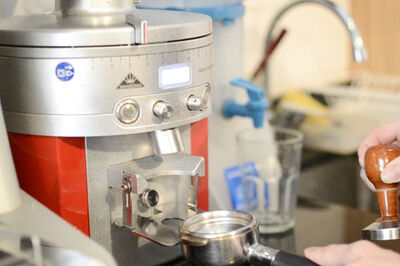
views
Paris: After 30 years without a male grand-slam winner, France's tennis establishment is beginning to question whether the absence of success is purely down to a lack of natural-born winners.
Since Yannick Noah's triumph at the French Open in 1983, France has endured a barren spell at the majors with a shallow talent pool and a lack of mettle in their top players cited as possible reasons. Quantity has prevailed over genuine quality as French tennis has seen numerous players rise into the top 10 over the years, without being able to take the next step.
Among the current crop, Jo-Wilfried Tsonga and Richard Gasquet are both in the sport's top 10 while three more make the top 30.
"It's been 30 years since a Frenchman won a grand slam but we have not had a top-three player, capable of winning big titles, for 30 years," national technical director Patrice Hagelauer told Reuters.
France used to be a dominant power in the sport with the "Musketeers" Jean Borotra, Henri Cochet and Rene Lacoste collecting 18 grand-slam titles between them in the 1920s and 30s. Yet since Noah defeated Mats Wilander to give France their first grand-slam silverware in 37 years, Henri Leconte, Arnaud Clement and Cedric Pioline have all lost major finals.
World number eight Tsonga was the last to come within touching distance in the 2008 Australian Open final, but was beaten by Novak Djokovic.
Since then, no Frenchman has seemed capable of joining Noah in the record books and the game's 'big four' of Djokovic, Roger Federer, Andy Murray and Rafael Nadal have shared all but one of the major titles since 2005.
While the lack of natural-born talent has had a huge part to play, some in the game say French players have only just started to do what is required.
"The players have finally come to understand that you need to commit yourself to a dedicated structure," former player and future national director Arnaud Di Pasquale told Reuters.
"It's critical to have a real organisation around you if you aim to win the biggest titles. Players have to commit themselves to the project. Yannick was that kind of player."
Hagelauer, who was Noah's coach in 1983 and has been in his current job since 2009, agreed: "All those who win - apart from Federer - have their own structure. You need a team with a coach, a physio and all. Only Jo has it."
BORN CHAMPIONS
While French players have enjoyed excellent training facilities from an early age within the national federation's programmes, they often struggle to free themselves from the system's structures.
As professionals, they frequently continue to work with coaches contracted to the federation.
Although the system has delivered 70 top-100 players in the last 40 years, some have suggested that French youngsters would benefit from trying something different, as Murray did when he moved from Britain to train in Barcelona as a teenager.
"The French tennis education system is very good. But obviously, we need to find inspiration in what is done abroad," said world number 17 Gilles Simon, who recently parted company with his coach of eight years, Thierry Tulasne, in order to work under German Jan De Witt.
French Open director Gilbert Ysern said the system had its weaknesses but could not be the only thing to blame as champions were born, not made.
"We have no influence in what makes a champion because they have it inside of them or they don't," he said.
"They lack the little extra technical skills or physical power. And when you listen to them, the problem is mental," he added.
"A champion may be the one who does not have that humility, who can say, even when he loses in straight sets: 'I'm stronger than him'."
Apart from the outspoken Tsonga, the current French generation clearly lack that mentality.
"We have not been lucky to be in this generation," Simon said. "Four players like those (Federer, Nadal, Djokovic and Murray)...when you have one or two, there's always a surprise and room to get to a final. Now, you know that you have to beat three of them."
The challenge is probably greater on clay, a physically demanding surface where seven-times French Open champion Nadal has been almost invincible. "There are more chances to see a Frenchman win another grand slam rather than Roland Garros because we've lived in extraordinary times with Nadal's dominance," Di Pasquale said.
Once known as the "Little Prince", the gifted Gasquet was expected to excel, but the world number nine has become a symbol of French failure, having been eliminated in the last 16 of the last five grand slams.
He fears that the French drought, whatever the reasons behind it, will continue if none of the current crop manages to succeed Noah. "We have a great generation. So I think if we don't win a grand slam in the next couple of years, we'll wait 10 more years at least," he said.



















Comments
0 comment